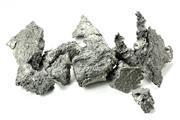China has the world’s largest reserves of rare earth minerals
China has dramatically reduced their exports of rare earth metals in a surprising move for the electronics industry. China has the world’s largest reserves of rare earth metals and currently controls almost all the production of them. These metals are used in trillions of dollars worth of high-tech electronics, including smart phones, hybrid cars and wind turbines.
Rare earth metals

Rare earth metals include scandium, yttrium and all the lanthanides. Despite their name, they are not ‘rare’ in comparison to precious metals like gold or platinum. Rather, because of their geochemical properties, these elements do not concentrate in ores that can be mined easily. Thus, the name ‘rare’ stems from the expense and difficulty in extracting them from their mineral ores, not necessarily the scarcity of the elements themselves.
Applications
Rare earth metals are used for a variety of applications:
- Neodymium iron boron magnets are the strongest permanent magnets currently known and are used in guided missiles, magnetic resonance imaging and wind turbines.
- Lanthanum nickel hydride batteries are used in hybrid cars because of their high charge densities.
- Erbium-doped fibre amplifiers are used to amplify signals in fibre optic cables, speeding up communication.
- Energy efficient fluorescent lamps, like those in your home, use compounds of Y, La, Ce, Eu, Gd, Tb on the inside surfaces of the bulbs.
Trade
China has the largest of the world’s reserves of rare earth metals (37 per cent according to the Royal Geographical Society) with the rest mainly found in Russia, America and Australia. Since discovering these metals in the 1960s, China is now responsible for 97 per cent of the global production. China has gained this near monopoly not just because it has the largest reserves, but also because it offers the lowest prices for these metals.
The unprecedented growth of China’s rare earth industry in recent years has led to disorganisation and, taking advantage of this, smuggling has a led to a large proportion of China’s resources leaving the country illegally. As China’s domestic industries have grown China needs to control its rare earth metal reserves to be able to supply its own industrial demands. This is perhaps why China has made such a major reduction in exports of these valuable metals to the world, reducing them by 72 per cent in the second half of 2010.
Originally published in InfoChem









No comments yet